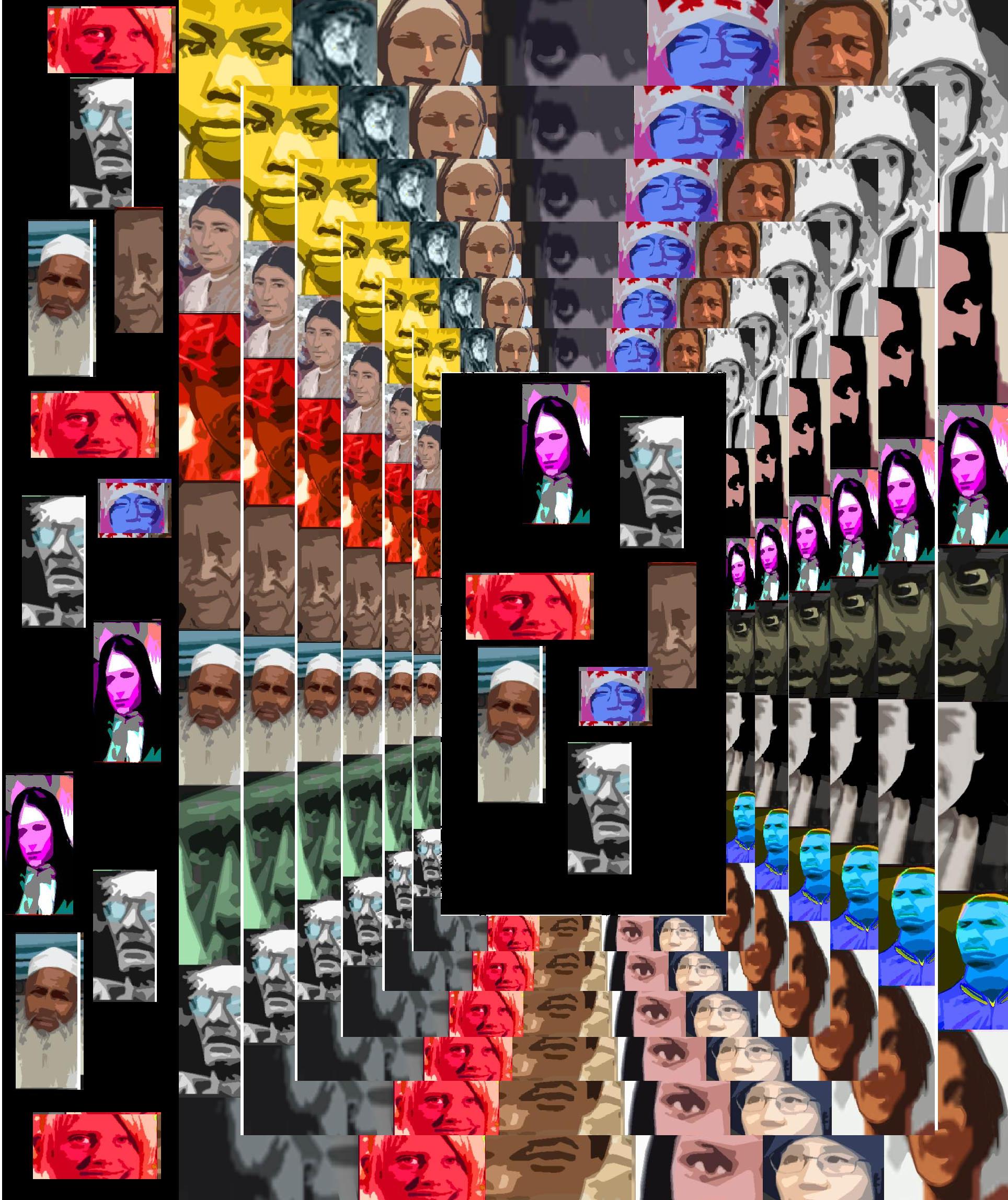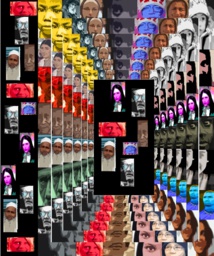preamble
But from the beginning of its language , that is to say upon entering the race of speech acts, of controversies and their closings, tongues and their driftings, this species has never stopped defeating or absorbing others, never ceased to consider in any case “otherness” as temporary. Even hostility, if it was not that of animals to hunt, became inevitably a difference to erase , whatever the time it should take, both by marriage or by war , by sexual fusion or by massacre.
In a world still divided into empires, homelands, religions, philosophies , social classes , etc. ... we struggle to remember a deeper obviousness : human kind seeks , since it is a speaking species , to be only One as a society, and this time perfectly sole on a world that would finally belong to it without sharing.
But as long as the perfect solitude of our kind was delayed, denied or resisted by encounters with challenging others – foreigners, enemies or allies , related or not, near or distant cousins, migrants, peddlers, free hosts or hostages, etc. . - it was able to attribute most of its deepest problems or contradictions , to these " outside agents ". It only recognized them indirectly , as if they did not belong to it, as if they had nothing to do with its most constant goal : becoming oneself and nothing but by itself.
Now that interferences were almost all absorbed in the same " Buddha's Belly " that fairly represents the planetary civilization, humanity cannot elude anymore: it must admit that its uniqueness -now reached and guarantor of its inner unity - is also what triggers ongoing opportunities of internal conflicts , departures of new fault trees, emergences of unexpected disparities, reactivities of rare violence , endogenous collapses, cultural cyclonic formations of which chaotic power is not less than that of their climatic counterparts.
Thence to infer that our whole history - even our prehistory- , should not only be interpreted retrospectively in terms of shocks with external appearances , but already to a large extent, as a result of seizures hitting a single people ... it there is only one step, we will not hesitate to cross.
This deliberate choice does not mean that we’ll deny externality (which comes from " others ") in the human process. Rather, we must undoubtedly recognize that without it - in forms going back to all immediate competition encountered by the speaking primate, and which Darwin prognosticated that we would ruthlessly eliminate- human culture would have never been so much polarized by the idea of becoming ... unique.
However, viewed in this light, the constant cultural pressure to confirm and enforce the membership of each person in the societal entity cannot simply be read as an automatic mechanism, something which goes without saying . The discovery of the symbolic language implies its subjects in a laborious, even painful way. Freud spoke of "discontent " (Unbehagen) related with culture, but one could rather pointing culture itself, or civilization - as a malaise, a discomfort, a difficulty, a suffering. That was, in turn, emphazised by Jacques Lacan pointing out that , far from being a metaphysical projection , for men : " Hell is everyday life. "
What we need therefore describe, through the framing of a global humanity, is the double movement of mutual overlap and interpenetration between "the cause for human unity" and the responses to this question, whenever they rise from "objective" situations by groups , classes, bodies, etc . , or from individual resistances, called "subjective" as long as they occur precisely at the point where individuals are requested to commit their most intimate "being" in adherence to the human totality
.
As in climatology, we will simplify and model, that is to say separate phenomena which, in reality merge into the smaller molecules , making the emergence of new microscopic phenomena , which frequency acts back on the macroscopic scale. Only then can we try to reach these levels of finer complexity and entanglement.
To use a less "objectivist" language, we may be able to find that , if subjectivity and its avatars take an increasingly important role as one comes down from the broad categories of "population management" to the innumerable variety of individual feelings , then people in power, those who seek to design a world order coextensive with our species , would be well advised to pay close attention to it. And assuming that their intention, conscious or not, is to perfect the shape of the human race finally gathered, then maybe they will have to admit - willingly or not - that the molecular resistance of the Subject to this ancient and tenacious utopia could lead –by a chain reaction- to an unforeseeable -yet predictable- explosion .
Why, after all ? Because, as we will now study it, the closer the absolute unity is approached, the stronger tend to be the subjective forces of plurality.
 Commander des livres de Denis Duclos (études et essais)
Commander des livres de Denis Duclos (études et essais)

 CRISE DU CAPITALISME ET CONSOLIDATION DU SYSTEME-MONDE
CRISE DU CAPITALISME ET CONSOLIDATION DU SYSTEME-MONDE


